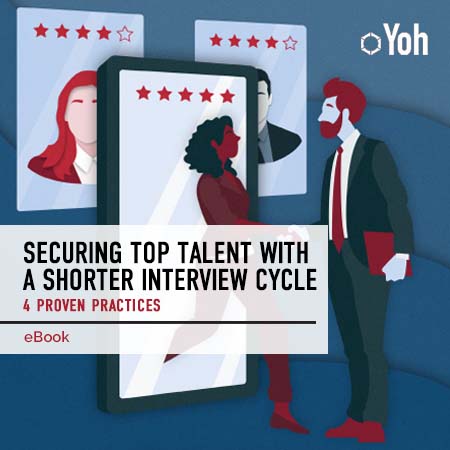- Get Talent
Great Talent Ready When You are
Professionals When You Need Them.
Highly skilled professionals for long- and short-term or permanent needs.
TECH TALENT ON-DEMAND
TECHNOLGY RECRUITMENT SPECIALISTS
Technology moves fast, but Yoh moves faster. We find technology professionals who can make an impact immediately.
The right technology talent can have an immediate impact on your organization or project. We’ve been working with some of the world’s largest companies, innovators and start-ups for decades to help them meet their long- and short-term talent needs. Many companies also rely on us to help them with permanent hiring, especially in hard-to-find, highly-skilled areas. Yoh has developed a reputation for being easy to deal with, providing great local and national service and taking care of our contractors while on assignment. It all makes sense. Today, more than 25% of many companies are contracted, temporary employees. Let Yoh help you find the right technology talent for your company. Also, discover our specialty practices areas where we have an even greater depth of knowledge and experience. Yoh knows tech talent.
Flexible Engagements:
- Contract
- Direct Hire
- Statement of Work (SOW)
- Project Based/Deliverables
We cover a wide range of industries, see how we can help.
Get Talent by Sector
- Fintech
- Information Technology
- Healthcare
- Life Sciences
- Product Engineering

The team I work with managed by Matt Alfero is highly personable and has demonstrated a clear dedication to the talent search, identification and presentation process. I have found those I've interacted with to be excellent communicators and skilled collaborators.




